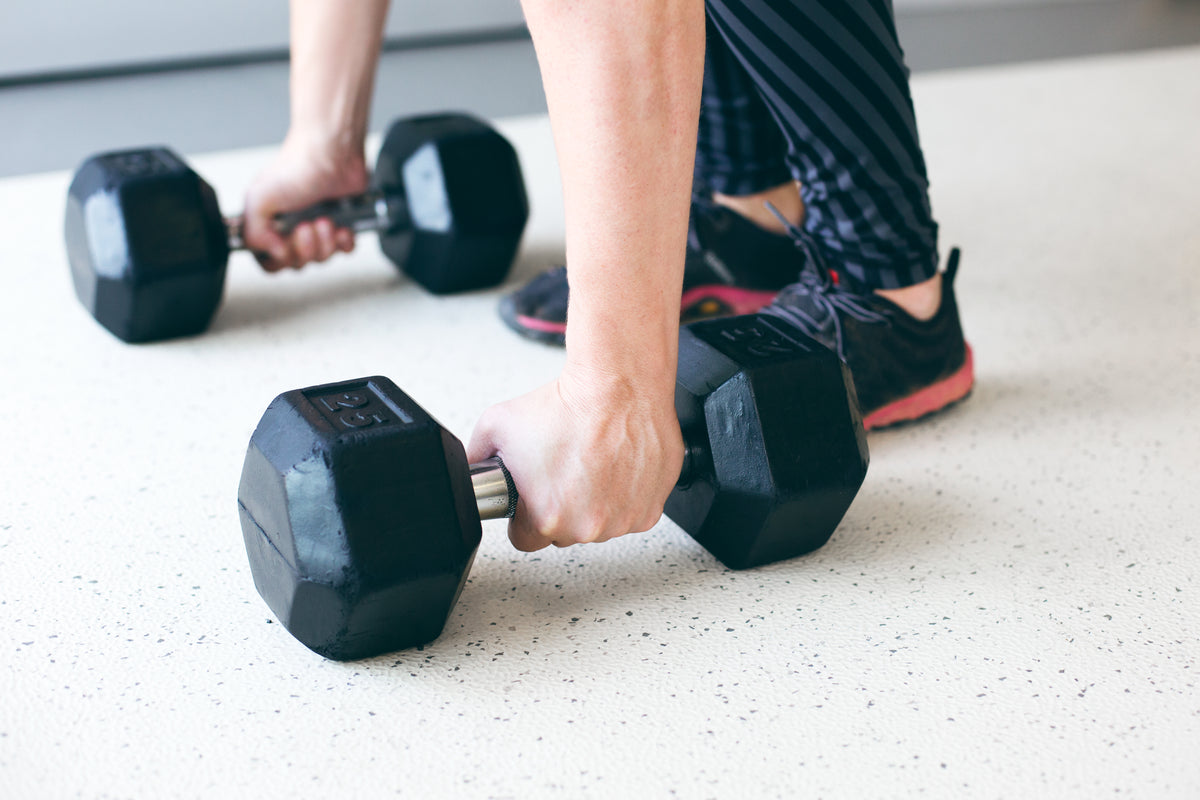When you’re trying to lose weight, one question almost always comes up: Should I do more cardio or lift weights? You’ll hear different answers from different people—some swear by running, others won’t touch a treadmill and only lift. As a medical weight loss clinic, we’re here to cut through the noise and give you a clear, science-backed answer. Let’s explore what the research actually says and how to choose the right workout for long-term results.
Let’s Define Our Terms: What Are We Talking About?
Before we compare the benefits of each, it’s important to understand what cardio and strength training actually mean.
What is Cardio?
Cardio, or aerobic exercise, includes any activity that raises your heart rate and keeps it elevated over time. This could be brisk walking, running, cycling, swimming, or using an elliptical. It’s often recommended for improving heart health, stamina, and overall fitness.
What is Strength Training?
Strength training, also called resistance or anaerobic training, involves working your muscles against a force. This includes lifting weights, using resistance bands, or doing bodyweight movements like squats and push-ups. It’s primarily focused on building and maintaining lean muscle mass.
The Case for Cardio: The Calorie-Burning Champion
Cardio is popular because it burns calories—fast. Depending on intensity and duration, a cardio session can torch hundreds of calories in a single workout. For many, it’s a go-to option for creating a calorie deficit, which is key for fat loss.
Cardiovascular exercise also supports your heart and lung health, helps regulate blood pressure, and reduces the risk of chronic diseases like type 2 diabetes and stroke. So yes, it’s an important part of any healthy lifestyle.
But here’s the catch, while cardio burns more calories during the workout, its fat-burning effect doesn’t last very long after you stop.
The Case for Weights: The Metabolism-Boosting Engine
Strength training may not burn as many calories in a single session as cardio, but its impact on your body lasts longer, and may be even more powerful for weight loss over time.
Building lean muscle increases your basal metabolic rate (BMR), which means you burn more calories even when you’re sitting still. Muscle tissue is metabolically active, so the more muscle you have, the more energy your body uses daily, even while sleeping.
Additionally, strength training helps prevent muscle loss during weight loss, which is key for maintaining results and long-term body composition. Studies also show it improves insulin sensitivity, joint strength, and bone density.
The Verdict: So, Which One Should You Choose?
Here’s the honest answer: You don’t need to choose. For best results, do both.
Think of cardio as your immediate tool for burning calories, and strength training as your long-term investment in a more efficient metabolism. One gives you a head start, the other helps you stay ahead.
The combination also helps with adherence. Some people find cardio therapeutic and mood-boosting. Others love the sense of power from strength training. When you mix both, you get the physical and psychological benefits that help you stay consistent.
How Do I Combine Them? A Doctor’s Recommended Starting Point
If you’re just getting started or feeling overwhelmed, keep it simple.
Here’s a realistic weekly plan:
- 2–3 days of full-body strength training (e.g., squats, lunges, push-ups, dumbbell exercises)
- 2–3 days of moderate-intensity cardio, such as brisk walking, swimming, or cycling for 30 minutes
- Rest days as needed, or gentle movement like stretching or yoga
Tip: Don’t work the same muscle groups on back-to-back days. Muscles need rest to recover and grow.
How This Fits into a Personalized Medical Weight Loss Plan
While cardio and strength training are both great for weight loss, they’re even more powerful when paired with a medically-guided plan.
At Modest Medix, we look beyond workouts. We assess your health conditions, hormonal profile, and metabolic rate to determine what kind of exercise your body actually responds to. Some patients benefit more from strength-focused routines, while others need gentle, low-impact cardio due to joint issues or fatigue.
A medical team can also help you:
- Safely start exercising, especially if you’re dealing with injuries or chronic health concerns
- Combine movement with nutrition, medications (if appropriate), and mindset coaching
- Track your progress in a meaningful way—beyond the scale
How Modest Medix Can Help You
At Modest Medix Weight Management Centre in Mississauga, Ontario, we don’t believe in one-size-fits-all plans.
Our team includes medical doctors, registered dietitians, social workers, health educators, and coaches, all working together to figure out what’s really going on with your weight, your hunger, and your health.
We offer:
- Personalised nutrition coaching using our Nutriconscious approach
- Mindful eating and behaviour support
- Genetic testing to understand how your body responds to food
- ACT-based therapy to help manage emotional eating, stress, and self-criticism
- Medication support if biology is blocking progress
- OPTIFAST for patients who need structured meal replacement options
We don’t push a program.
We build a plan around you.
Written by the Modest Medix Clinic Team | Reviewed by Dr. Saima Khan (Dr. Eskay)











